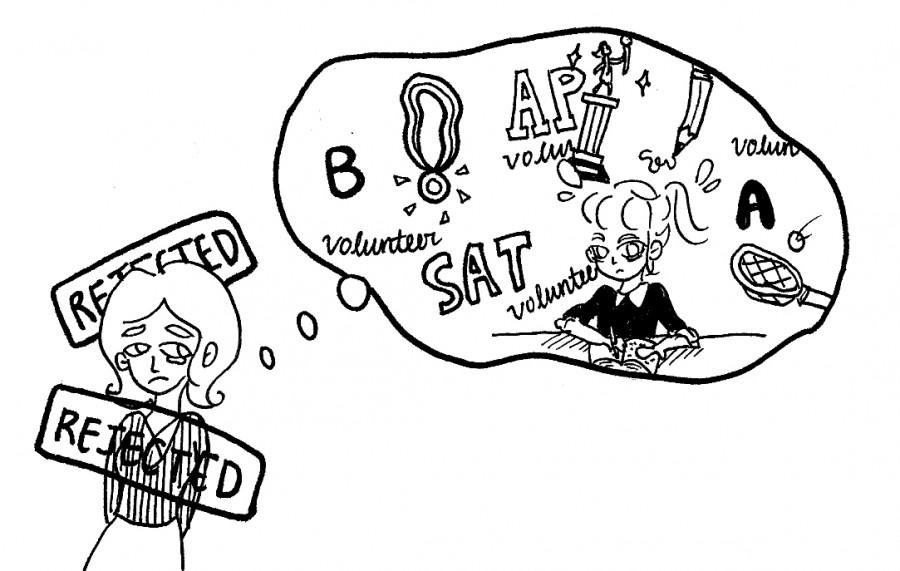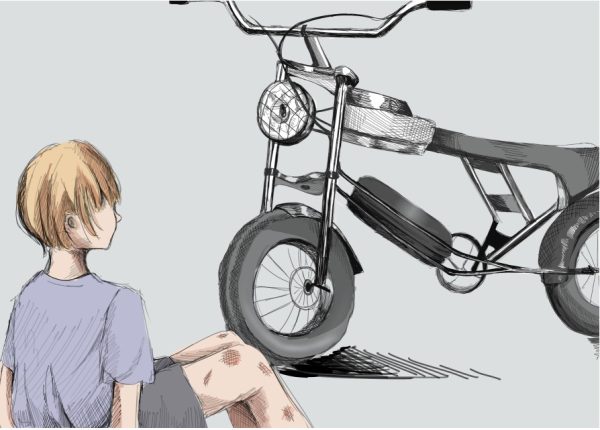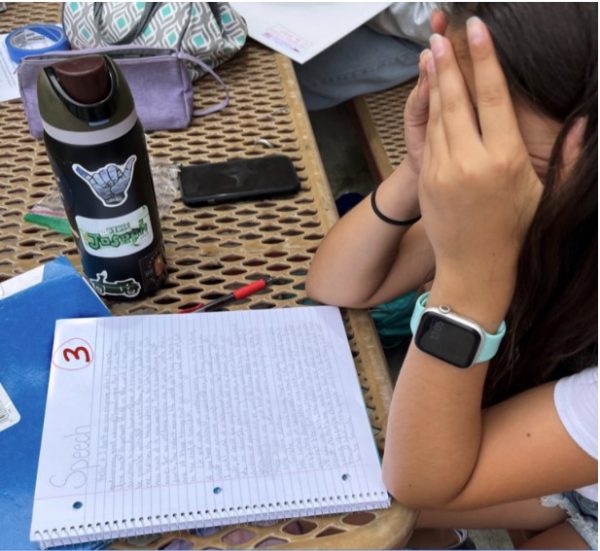Not so excited about accepting rejection
The number of students being rejected from their colleges of choice is unjustly increasing, and with this, so is the competition among students and the air of disappointment at the dramatically lower rates of acceptances.
Students should be able to have access to the schools they dream of attending if they put in great academic efforts. When students are able to go to the campuses of their choices, they have more motivation to come to their classes and work toward their degrees; they feel as if there is a payoff to all their hard work in grades 1-12.
According to the Daily Bruin, the University of California, Los Angeles exhibited a declining rate of admissions last year.
As opposed to the former year’s rate of 18.1%, “UCLA had a record-low admission rate of 17.3% for Freshman applicants for the 2015-2016 school year.”
Competition over slots in colleges across the nation is peaking, as the standards of acceptance continue to climb. Additionally, expectations from students in realms outside of pure academics have also skyrocketed.
“Extracurricular activities are the major way students can demonstrate how unique they are, possibly more interesting, even ‘better’ than other student applicants,” said Marjorie Hansen Shaevitz in her Huffington Post article, “What College Admissions Look for in Extra Curricular Activities.”
Arguably, colleges shifting focus to aspects of students aside from grades and test scores is advantageous for students who work hard, give back to the community and take on activities to make them overall well-rounded. However, competition over college slots is belittling the good intentions that shape the natural desire to do these activities.
This focus has put staggering pressure on students to take on as many activities as they can handle, often overwhelming students and consuming every free moment they have. In a world where an academically overachieving student’s effort is regarded as the bare minimum, it is hard to determine what is impressive enough for college administrators. The standard for extracurriculars and special achievements has been impeding overworked students striving to attend their dream colleges.
The solution to this problem is subjective and complex. There is societal awareness of all these factors in the college process, but until colleges themselves address the issues firsthand, things will continually become more difficult. Granted, the selectivity is in part because of high demand, and where there is high demand, there will consequently be many who do not make the threshold. Despite this, the frustration and struggle of students to reach college has exceeded a healthy limit.
Colleges such as Harvard are taking some beginning steps to work towards more fairness in the application process.
“ [A] report, sponsored by the Harvard Graduate School of Education, aims to reform the admissions process to dial down the pressure on high school students. Any changes that could take effect may not be in place for two to three years,” said an article on Today.com.
With this, it is no secret that a college education is very valuable in the workforce, and the growing interest in top schools reflects this. While it is getting increasingly valuable, simultaneously it is getting increasingly harder to gain admission to highly desired campuses. A college degree from a good school is inevitably an asset in the workforce and in everyday life.
According to an article from the Federal Bureau of Education, “[in] over four decades, workers with a Bachelor’s degree earned on average 56% more, and workers with an associate degree averaged 21% more than high school graduates.”
The endless scramble to the top through overwhelming extra curricular activity is taking away from the important focus of academics in the work force and everyday life as a whole. For the school system to provide more opportunity for students, colleges must adjust their standards.
Your donation will support the student journalists of Woodbridge High School. Your contribution will allow us to purchase equipment and cover our annual website hosting costs.







